
Dragon fruit, also known as pitaya, is native to southern Mexico, Guatemala, Costa Rica and El Salvador. It grows on several different species of cactus. Despite its origins in Southern America, it is most widely produced and consumed in Asia, with China the world’s biggest consumer. Vietnam is currently the world’s biggest producer and exporter of the fruit. Here, it is called ‘thanh long’, which translates to ‘dragon’s eyes’, and is believed to be the origin of its common English name.
‘Dragon fruit’ has been used since the early 1960s to describe the fruit, likely due to its leatherlike skin and prominent spikes. In some regions, the fruit may be known as a strawberry pear. The fruit generally weighs between 150g and 600g. The ideal fruit is unblemished and overripe.
VARIETIES
Stenocereus fruit (sour dragon fruit) is a variety that is commonly eaten in the arid regions of the Americas. They are reportedly sourer and refreshing, with juicier flesh and a stronger taste, than the Selenicereus variety.
Selenicereus undatus (white-fleshed dragon fruit) is perhaps the most well-known variety, and has pink-skinned fruit and white flesh. Selenicereus costaricensis (red-fleshed dragon fruit) is red-skinned with red flesh. Selenicereus megalanthus (yellow dragon fruit) has yellow skin and white flesh.
CULTIVATION
Bu hikaye Farmer's Weekly dergisinin Farmer's Weekly 7 & 14 April 2023 sayısından alınmıştır.
Start your 7-day Magzter GOLD free trial to access thousands of curated premium stories, and 9,000+ magazines and newspapers.
Already a subscriber ? Giriş Yap
Bu hikaye Farmer's Weekly dergisinin Farmer's Weekly 7 & 14 April 2023 sayısından alınmıştır.
Start your 7-day Magzter GOLD free trial to access thousands of curated premium stories, and 9,000+ magazines and newspapers.
Already a subscriber? Giriş Yap

When short-term rentals make sense
Bianca Smit, national operations manager at CFAO Equipment SA, outlines factors to consider when choosing a rental equipment partner.
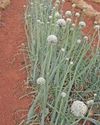
The timing of onion sowing is critical
Each onion variety has a different resistance to bolting, thus growers need experience and knowledge to guide them,
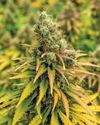
Understanding cannabis and hemp regulations in South Africa
South Africa's cannabis and hemp regulations remain a topic of debate and uncertainty, particularly when it comes to commercial use and small-scale production. Cannabis experts Shaad Vayej and Trenton Birch spoke to Octavia Avesca Spandiel about the challenges that small-scale cannabis and hemp farmers face.

European seed's influence on the US cannabis market
The expansion of European cannabis seed onto the US market is not just about economic growth; it’s also about enriching the landscape of US cannabis with diversity, innovation and education,
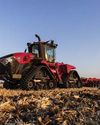
'It's important to get the right tool for the job'
The adoption of technology is crucial to sustaining efficiency gains and beating the cost-price squeeze in the agriculture sector.
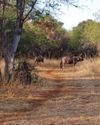
A brilliant bushveld break between Bela-Bela and Modimolle
The distinctive touch, diligence, and 24/7 customer care are just a few of the reasons you should visit four-star Tourism Council-graded Pumula Game Farm,

John Deere: elevating performance and efficiency in modern farming
In the fast-paced world of farming, the right tools make all the difference.

The naval disaster Winston Churchill tried to hide
Three British warships were sunk by German naval gunfire on a dark day early in World War II, but the heroes who fought back received only muted recognition, possibly to avoid bad publicity,
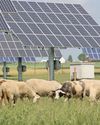
Breaking down the principles of regenerative farming
Jean Hugo, a post-graduate student at the Tshwane University of Technology, and Leon Hugo, author on environmental matters and former professor of geography at the University of Pretoria, write about the importance of regenerative agriculture for small-scale farmers, and the challenges related to making the shift.

Ectoparasite control: more tips for livestock farmers
To reduce the mayhem that uncontrolled ectoparasites can create for communal farmers, it’s best to adopt a holistic approach in conjunction with veterinary remedies,